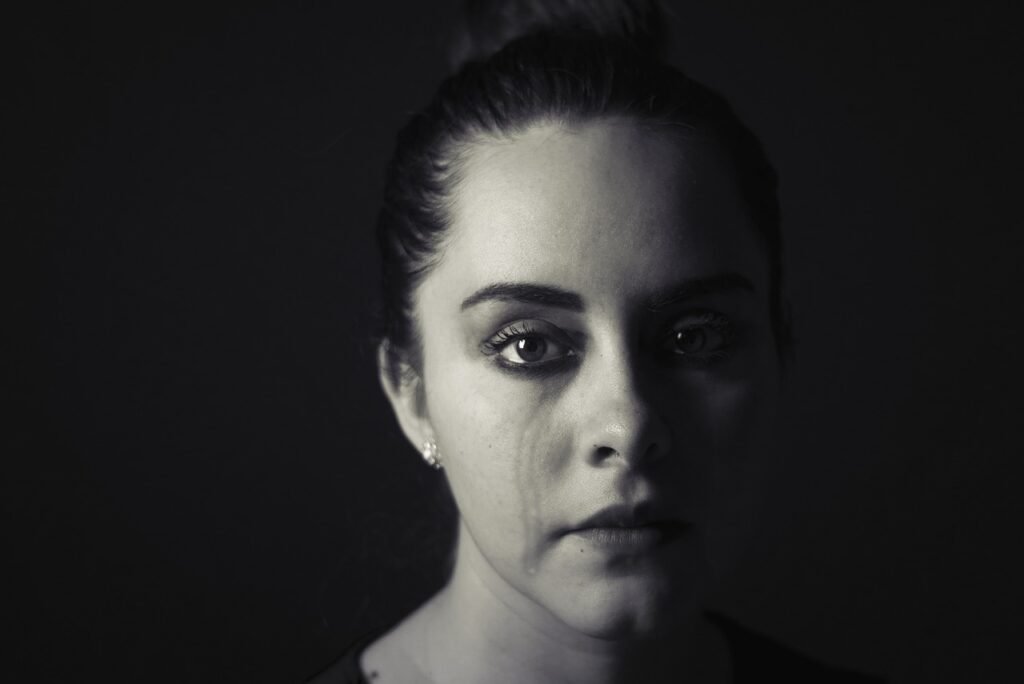Understanding Unexplained Sadness in Women: Causes and Coping Strategies
Feeling inexplicably sad is a common experience, especially for women. The emotional landscape can often feel complex and puzzling, leading many to seek answers and strategies to navigate these feelings. In this article, we delve into the reasons behind unexplained sadness among women and explore effective coping mechanisms tailored to their needs.
Understanding Unexplained Sadness
- Emotional Complexity:
- Emotions often lack a direct cause-and-effect relationship. Unexplained sadness can arise due to many factors, making it challenging to pinpoint a singular reason.
- Past experiences, personal interpretations, and subconscious triggers can influence emotional responses.
- Biological Factors:
- Hormonal fluctuations, particularly during menstrual cycles, pregnancy, postpartum periods, and menopause, can significantly impact mood.
- Neurological and chemical imbalances in the brain, such as serotonin and dopamine levels, affect emotional regulation.
- Psychological Influences:
- Stress, trauma, unresolved conflicts, or grief can manifest as unexplained sadness.
- Persistently feeling depressed without a clear explanation could be attributed to underlying mental health issues such as anxiety or depression.
- Societal and Cultural Pressures:
- Societal expectations, gender norms, and cultural pressures can affect emotional well-being, leading to feelings of inadequacy, pressure to conform, or societal stressors unique to women.
- Balancing multiple roles—career, family, and societal expectations—can contribute to emotional distress.
- Interpersonal Relationships:
- Feelings of loneliness and depression may be exacerbated by disagreements, damaged relationships, or a lack of support networks.
- Emotional dynamics within friendships, romantic relationships, or family dynamics can impact mood.
- Environmental Triggers:
- External factors such as seasonal changes, environmental stressors, or life transitions can influence emotional states.
- Living conditions and other socioeconomic issues might have an effect on mental health and exacerbate depressive symptoms.

Understanding unexplained sadness requires a holistic approach, considering the intricate interplay of biological, psychological, social, and environmental factors. Recognizing these multifaceted influences can guide individuals toward effective coping strategies and avenues for seeking support.
Factors Impacting Women’s Emotions
| Factors | Description |
| Hormonal Fluctuations | Hormonal changes during menstrual cycles, pregnancy, postpartum, and menopause can significantly affect mood stability and emotional well-being. |
| Biological and Neurological Aspects | Neurotransmitter imbalances (e.g., serotonin, dopamine) and genetic predispositions can impact emotional regulation, potentially leading to unexplained sadness and mood disturbances. |
| Societal Expectations | Pressures stemming from societal norms, gender roles, and cultural expectations place unique emotional burdens on women, contributing to feelings of inadequacy, stress, or self-doubt. |
| Multiple Role Balancing | Juggling multiple roles, such as career, family, caregiving, and social responsibilities, can create emotional strain, leading to overwhelming exhaustion and emotional distress. |
| Stress and Trauma | Past traumas, ongoing stress, or unresolved conflicts can manifest as unexplained sadness, affecting emotional stability and contributing to persistent feelings of distress. |
| Mental Health Conditions | Underlying mental health issues like depression, anxiety disorders, or mood disorders can exacerbate unexplained sadness and impact women’s emotional well-being. |
| Social Support and Relationships | The quality of interpersonal relationships, support networks, and dynamics within friendships, romantic relationships, and family units significantly influence emotional health. |
Understanding the diverse factors impacting women’s emotions provides a comprehensive view of the complexities involved. These influences underscore the need for personalized and holistic approaches to emotional well-being, encompassing biological, social, psychological, and relational aspects. Recognizing these factors can aid in developing tailored coping strategies and seeking appropriate support.
Coping Strategies Tailored for Women
| Strategies | Description |
| Mindfulness and Meditation | Engaging in mindfulness, meditation, or deep-breathing exercises promotes emotional regulation, reduces stress, and enhances self-awareness. |
| Physical Exercise and Movement | Regular physical activity, whether through workouts, yoga, or outdoor activities, can boost mood, alleviate stress, and release endorphins, enhancing overall emotional well-being. |
| Healthy Nutrition and Hydration | Keeping hydrated, eating a well-balanced, nutrient-rich diet, and abstaining from excessive caffeine and alcohol consumption can all have a favorable effect on mood stability and general mental health. |
| Journaling and Self-Reflection | Expressive writing, journaling thoughts and emotions, or engaging in self-reflection exercises can help women process feelings, gain insights, and identify patterns contributing to emotional distress. |
| Establishing Support Networks | Actively seeking and nurturing strong support networks through friendships, support groups, or online communities provides avenues for sharing experiences and receiving empathy and advice. |
| Setting Boundaries and Self-Care | Learning to set boundaries, prioritize self-care, and say ‘no’ when necessary can prevent emotional exhaustion, foster resilience, and promote a healthier work-life balance. |
| Therapeutic Interventions and Counseling | Seeking professional assistance provides individualized interventions, coping mechanisms, and a secure environment for exploring emotions. Examples of these services include therapy, counseling, or support from mental health specialists. |
Tailoring coping strategies specifically for women involves recognizing their unique needs and circumstances. Implementing these strategies empowers women to manage and overcome unexplained sadness, promoting better emotional well-being and resilience.
Seeking Support and Professional Guidance

Women experiencing unexplained sadness or persistent feelings of emotional distress often benefit from seeking various forms of support and professional guidance. Understanding the available avenues can empower individuals to address their emotional well-being effectively.
- Therapy and Counseling:
- Individual Therapy: Individual sessions with a licensed therapist or counselor provide a personalized approach to exploring emotions, triggers, and coping strategies.
- Group Therapy: Participating in group sessions offers a sense of community, shared experiences, and support from peers dealing with similar emotions.
- Online Counseling Services: Accessing therapy or counseling through online platforms can offer convenience and flexibility.
- Mental Health Professionals:
- Psychiatrists: Consultation with psychiatrists might be beneficial for individuals requiring medication management or exploring underlying biological factors contributing to emotional distress.
- Psychologists: Seeking guidance from psychologists helps in understanding behavioral patterns and coping mechanisms and implementing psychological interventions.
- Support Groups and Communities:
- Local Support Groups: Joining local support groups or community organizations focused on mental health provides opportunities for sharing experiences, receiving advice, and building a support network.
- Online Forums and Communities: Engaging in online forums, social media groups, or virtual communities dedicated to mental health enables individuals to connect with others facing similar challenges.
- Educational Resources:
- Books and Articles: Exploring books, articles, and credible online resources on emotional well-being, self-help, and mental health awareness can provide insights and practical guidance.
- Webinars and Workshops: Attending workshops or webinars conducted by mental health professionals can offer valuable information and coping strategies.
- Employer or Academic Support:
- Employee Assistance Programs (EAPs): Many workplaces offer EAPs, providing confidential counseling services and resources to employees with emotional challenges.
- University Counseling Services: Students can access counseling services provided by educational institutions to address emotional concerns and stress related to academics or personal issues.
Seeking professional guidance and support demonstrates strength and commitment to improving emotional health. Understanding the various avenues available for support empowers women to take proactive steps toward managing and overcoming unexplained sadness, promoting overall well-being.
Stories of Resilience and Connection
Personal narratives and stories from women who have navigated and triumphed over unexplained sadness or emotional distress can offer valuable insights, empathy, and a sense of solidarity. These stories provide comfort and inspire hope and resilience in those facing similar challenges.
- Shared Experiences:
- Hearing personal accounts from women who have experienced unexplained sadness helps individuals realize they are not alone in their feelings. Knowing that others have faced similar emotions can provide comfort and validation.
- Empathy and Understanding:
- Sharing stories fosters empathy, allowing individuals to understand the complexity of emotions and the diverse paths people take to cope and heal.
- It creates a supportive environment where women can express themselves without judgment, fostering understanding and compassion.
- Identification and Validation:
- Stories of resilience and overcoming emotional distress help individuals identify common patterns, triggers, or coping mechanisms that resonate with their experiences, validating their feelings and struggles.
- Inspiration and Hope:
- Inspirational stories of women who have successfully navigated difficult emotional periods can provide hope and motivation.
- Learning how others have coped, grown, and found joy despite challenges can inspire individuals to explore new coping strategies and perspectives.
- Building a Supportive Community:
- Sharing stories creates a sense of community among women, encouraging open dialogue and the exchange of advice, strategies, and emotional support.
- It promotes an environment where women feel comfortable seeking help, guidance, and connection with others who understand their experiences.
- Encouraging Self-Expression:
- Encouraging women to share their stories fosters self-expression and empowerment. It provides a platform for individuals to voice their emotions and experiences, contributing to personal healing and growth.
Stories of resilience and connection create a space for empathy, understanding, and support. They offer a sense of belonging and encouragement, reminding women that their experiences are valid and that healing and growth are possible. These narratives help build a community that fosters empathy and strength in navigating emotional challenges.
Conclusion
Unexplained sadness can be a complex and challenging experience, particularly for women. By understanding the multifaceted nature of emotions, exploring their triggers, and implementing tailored coping strategies, women can empower themselves to manage and overcome these feelings. Seeking support through personal connections or professional guidance is vital to emotional well-being. Remember, you’re not alone, and with the right strategies, you can navigate through these emotions and find a path toward greater emotional resilience and happiness.
- Understanding Anger Issues: Signs, Impact, and Coping Strategies
- Crisis Mode: Navigating the Chaos of Midlife and Emerging Stronger
- Navigating the Midlife Maze: Understanding When and How Women Experience a Midlife Crisis
- Understanding Unexplained Sadness in Women: Causes and Coping Strategies
- Unlocking the Mystery: Why Doesn’t Caffeine Affect Me?
Leave a Reply
You must be logged in to post a comment.